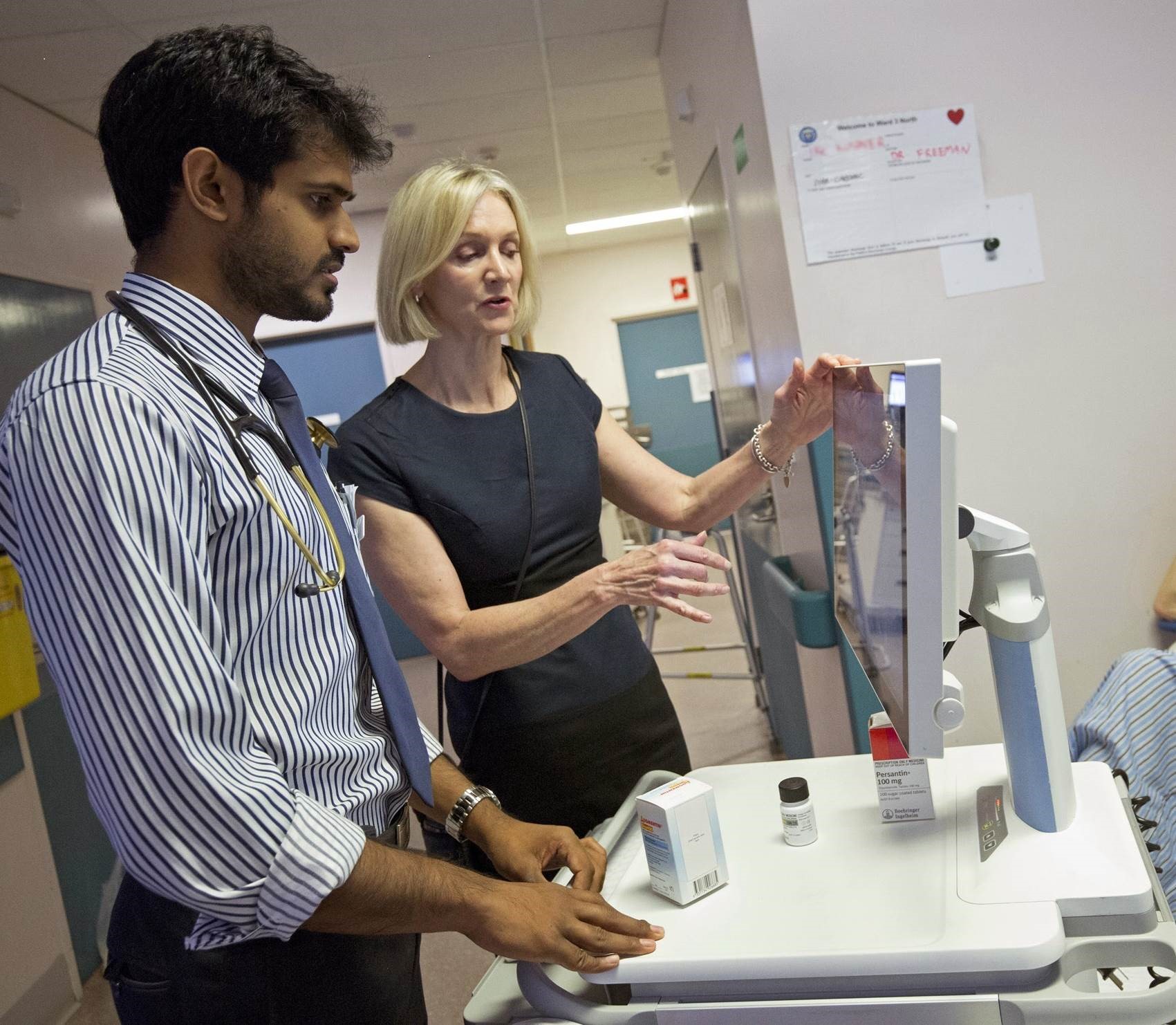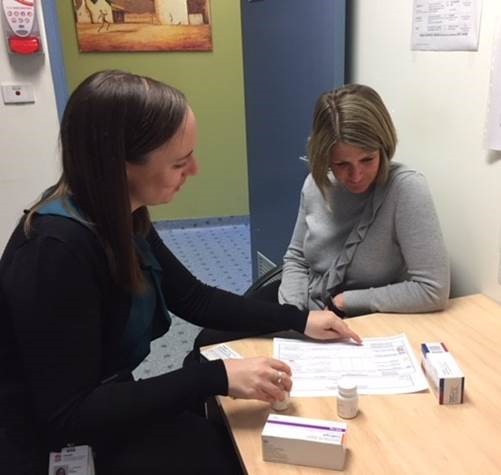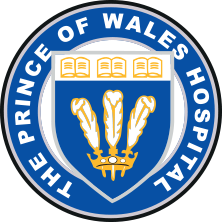Pharmacy
How we can help you
We work together with doctors, nurses and other members of your health care team to manage your medicines. We make sure you receive the best choice of medicine, the right dose, the right length of treatment, the right combination of medicines and at the right time.
We also provide advice to doctors, nurses, patients and carers about possible side-effects of medicines and interactions with other medicines or food. This advice is particularly important if you are older, have a number of medical problems, or take a lot of different medicines.
We can help to minimise the number of medicines you take and identify and stop medicines that could cause problems for you. If you have difficulty remembering to take your medicines we can provide advice to help you.

Our team includes:
Pharmacists who have expert knowledge about medicines including potential side effects, dosing and interactions between different drugs.
Pharmacy technicians who dispense medicines and make sure your medicines get to you when you need them. They also provide support to the Pharmacists.
Our store and administrative staff who manage our stock of medicines and ensure medications are available on the wards.
In addition to members of your healthcare team, we work in partnership with your general practitioner (GP), Prince of Wales Hospital and Community Health Services and local pharmacies.
It is important to keep a list of ALL the medicines that you take (including prescriptions medicines, vitamins, creams, eye drops, inhalers, patches, injections) and bring this list with you when you come to hospital. It is important to always keep this list up to date.
If you don't have a list, bring all your medicines in a bag, including any herbal or over the counter medicines.
If you do bring your medicines with you, your nurse may take them from you and store them safely. Make sure they are returned to you when you leave hospital. If you have a relative or carer they could also take the medicines home for you.
If you are admitted into hospital you will be asked what medicines you take (do not be concerned if you are asked more than once during your stay, we need to check we have the correct information). This helps us to make sure you receive the correct medicine while you are in hospital and helps us identify any potential medicine related problems. Please let us know if any of your medicines have changed recently.
If you are allergic or sensitive to some medicines please let your doctor, pharmacist or one of the nurses know so we can document this in your medical record and make sure you are not given any of these medicines.

The nurses will give you your medicines while you are in hospital. Do not take your own medicines while you are in hospital unless your nurse or pharmacist tells you to.
While you are in hospital you may be given some new medicines to take and asked to stop taking some of the medicines you normally take. Your hospital doctors should always include you in these decisions and provide you with information about your treatment options.
When you leave hospital the pharmacy department will only give you a small supply of any new medicines and medicines where the amount you need to take has changed. It is best to make an appointment to see your GP within 5 days of leaving hospital so that you can get prescriptions for any ongoing or new medicines if you need them.
When you leave hospital your pharmacist, nurse or doctor will explain what medicines you will need to take when you go home, how to take them, how long to take them for and how to store them safely. A medicines list may also be provided, or you can ask for one.
Information leaflets are also available on each medicine to help you understand your medicines better. You can ask your nurse or doctor to contact the pharmacist if you have any questions about your medicines or would like more information.
If you want to see a pharmacist before you leave hospital, please ask the nursing staff to arrange for the pharmacist to visit you.
Medicine names can be confusing. The active ingredient is the name of the chemical in the medicine that makes it work. The brand name is the name given by the pharmaceutical company. There may be quite a few brands of the same medicine. The medicine you receive in hospital may look different to the one you receive at home because the hospital keeps a different brand in stock.
During your hospital stay a pharmacist or doctor may visit and go through your medicines with you. They will ask about your medicines to understand what you take and how you actually take them. They may talk to you about suggestions to help taking your medicines easier and medicines which are not working may be stopped. It is also a time to talk about your medicines and ask questions. This is called a medicines review. For more information, see this fact sheet.
When you leave hospital it is important to let your GP, community pharmacist and other health professionals know if any changes were made to your medicines while you were in hospital. If you were given a medicines list when you left hospital take it with you when you go to your GP and community pharmacist so that they can update their records. If you no longer need to take a certain medicine then take any you still have at home to your local pharmacy to be destroyed.
If you need advice once you are at home, you can talk to your local pharmacist, or phone the hospital pharmacy.
Healthdirect - 1800 022 222
Healthdirect is a health information service in Australia. It offers online health information and advice.
MotherSafe - 9382 6539 (Sydney Metropolitan Area) 1800 647 848 (Non-Metropolitan Area)
Mothersafe is a free telephone service, based at the Royal Hospital for Women. It provides a counselling service for women concerned about exposures during pregnancy and breastfeeding.
NPS Medicines Line – 1300 633424
NPS Medicines Line is a telephone service providing information on medicines. When you call you will speak with an experienced registered nurse. Your question may be answered on the spot, or you may be referred to your GP or pharmacist, or another health professional.
Poisons Information Centre -131126
The Poisons Information Centre provides the latest information on poisons. You can ring 24 hours a day.
Please let us know if you need an interpreter. You can contact us telephoning the Translating and Interpreting Service (TIS) on 131 450. Tell the operator what language you speak and then ask the interpreter to set up a telephone conversation between you, an interpreter, and the healthcare professional you want to speak with.
We are a teaching hospital and you may be asked to be involved in research. You have a right to say no. If you do so, this will not impact in any way on the services we will provide.
